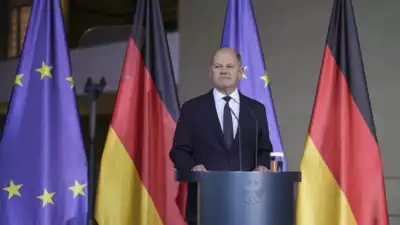
Germany plunged into political turmoil on Wednesday after the sacking of Chancellor Olaf Scholz Finance Minister Christian LindnerWhich leads to the collapse of the ruling coalition. The collapse of this three-party government is expected to result in early elections, possibly by March 2025, as Scholz seeks a new mandate amid deep political divisions in Europe’s biggest economy.
In announcing Lindner’s dismissal, Scholz cited irreconcilable differences on fiscal policy and accused his former finance minister of prioritizing “party interests over national stability”. The decision followed months of tension within the coalition, with the fiscally conservative Free Democrats (FDP) led by Lindner, resisting the budget deal proposed by Scholz’s Social Democrats (SPD) and the Greens.
Facing an economic slowdown and strained coalitions in Europe, Scholz plans to seek a confidence vote in January. “Germany needs a functioning government, which can take decisive steps to strengthen our economy and security,” declared Scholz. Adding to the uncertainty in the transatlantic relationship following the re-election of Donald Trump in the US, Scholz stressed the need for stability.
The chancellor also hinted at the possibility of working with Christian Democratic Union (CDU) opposition leader Friedrich Merz on key policies. Vice-Chancellor Robert Habeck indicated that the Greens would remain in a caretaker role, hoping for continuity despite the crisis.
Here’s everything you need to know:
- Scholz dismissed Lindner after an ongoing dispute over budget policies. The chancellor cited Lindner’s opposition to debt relief and climate investment as inconsistent with his administration’s economic vision.
- Scholz announced that he would pursue a vote of confidence on January 15, which could trigger early elections in March, six months ahead of schedule.
- Germany’s economy is expected to contract for the second year in a row. Scholz’s coalition partners struggled to agree on fiscal strategies to revive growth, with Lindner’s FDP demanding tax cuts and deregulation against the SPD and Green opposition.
- Scholz extended an offer to cooperate with CDU leader Friedrich Merz on issues of national importance, especially economic and security policies.
- The collapse of Germany’s government has sent ripples through Europe amid heightened global tensions, including Trump’s re-election and conflicts in Ukraine and the Middle East. Green Party leaders called the crisis “catastrophic for both Germany and Europe”.